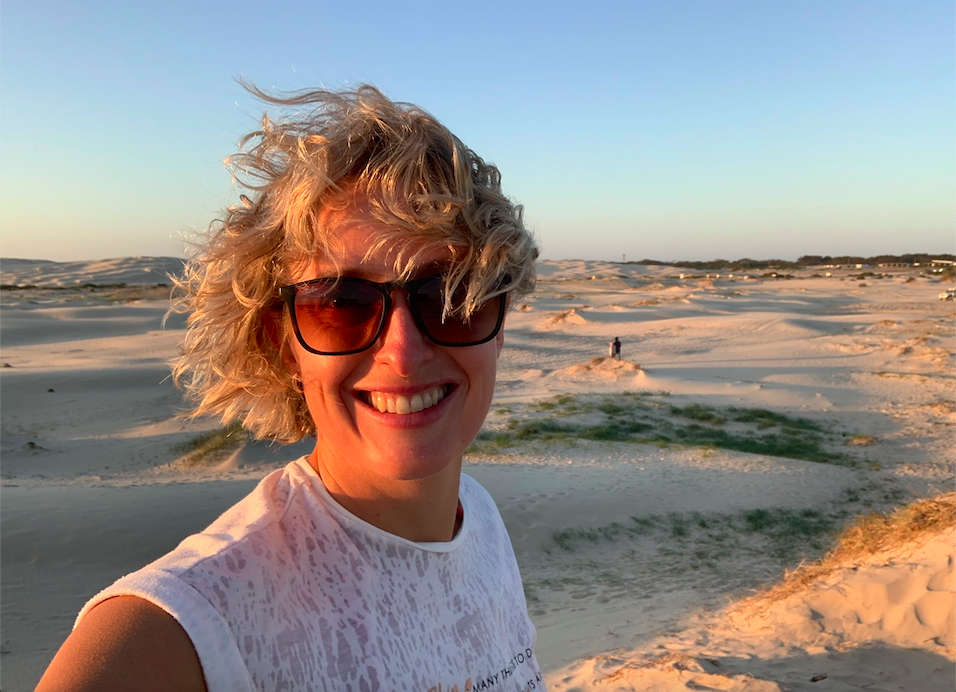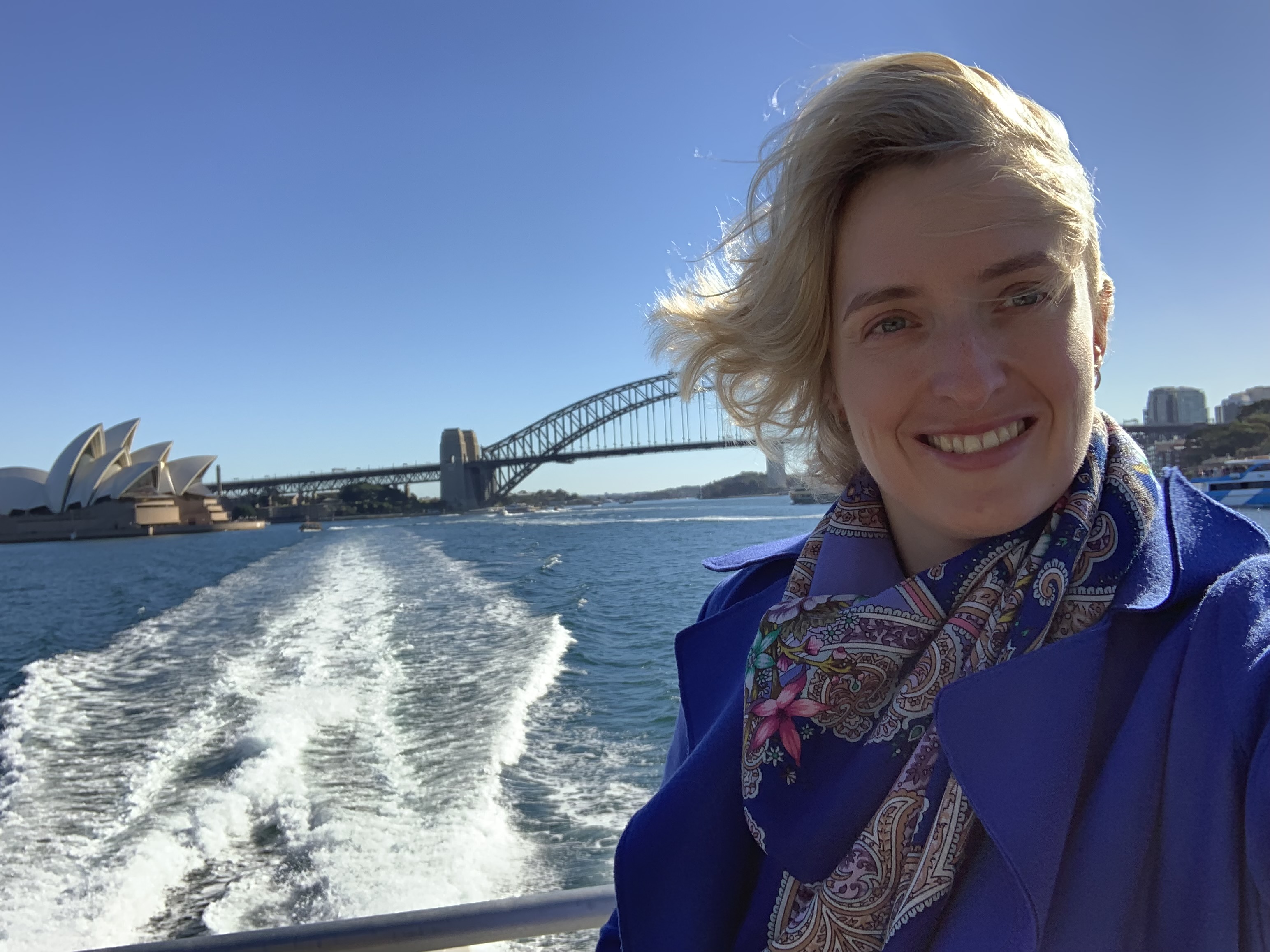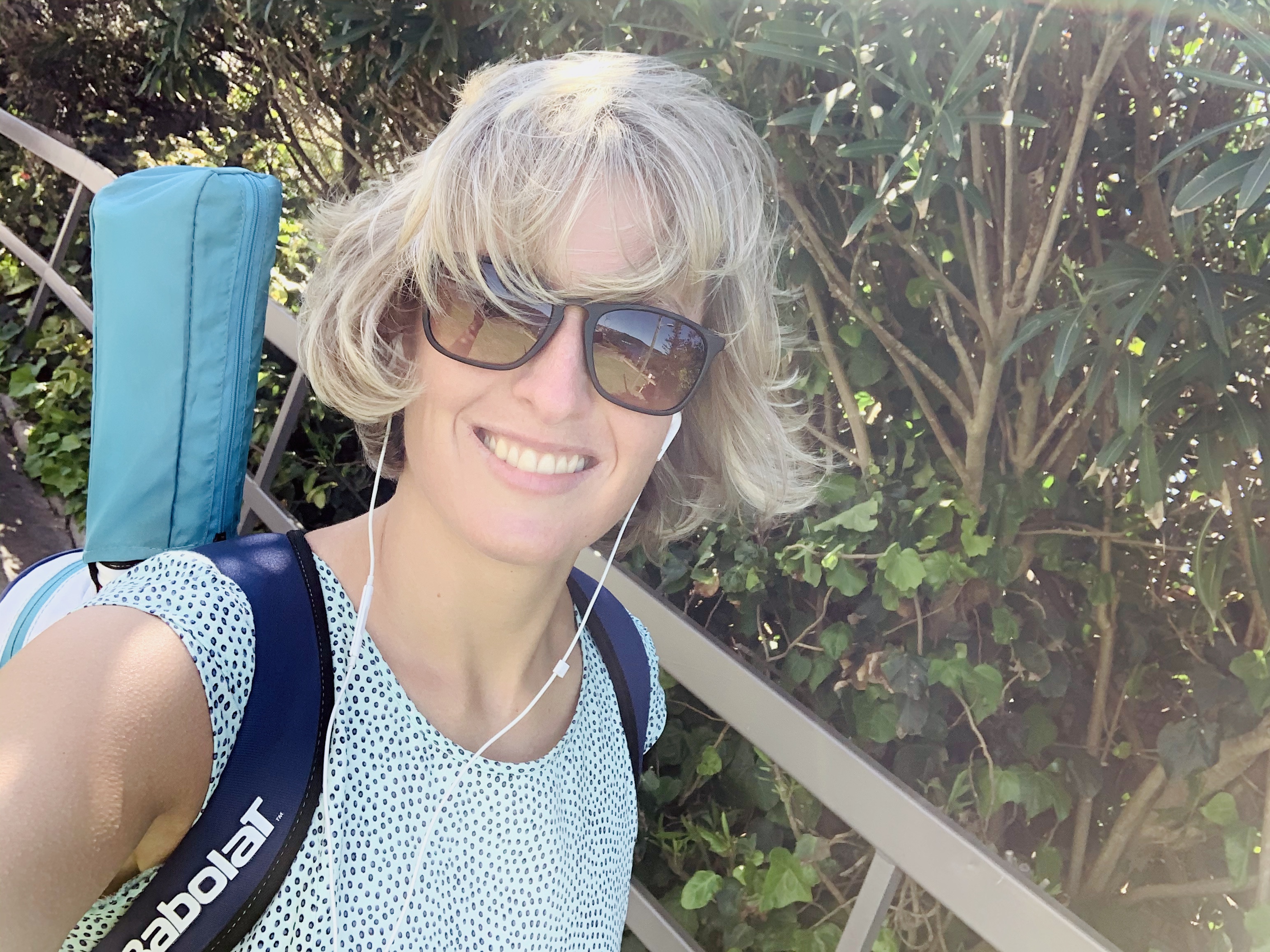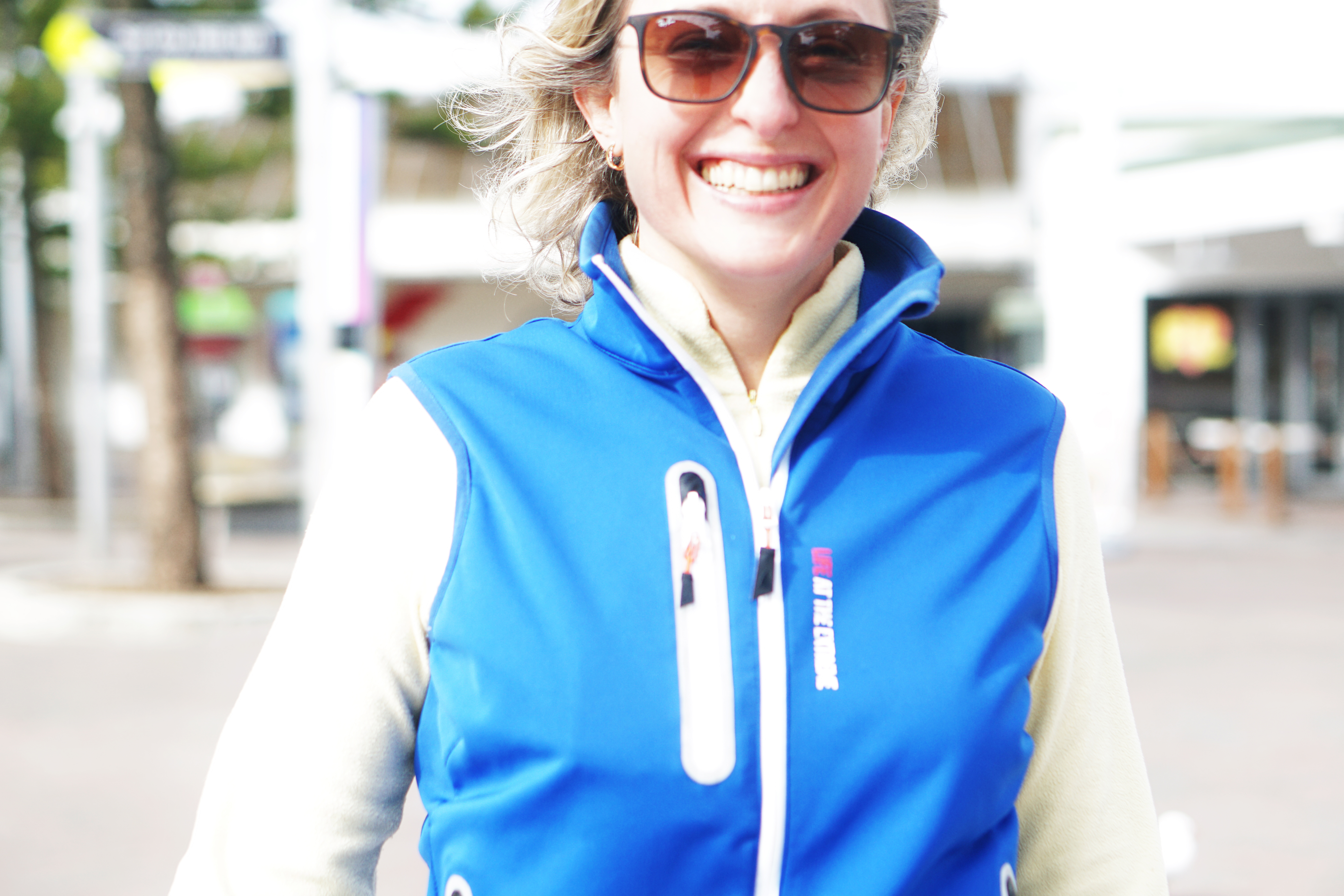'ICEF is a popular choice among challenge pursuers'

Elena Olevanova earned her bachelor's degree from ICEF in 2003. She studied and worked abroad, first at the Royal Bank of Scotland and then as part of ABN AMRO Energy Sector Coverage team. In 2018, Elena moved to Sydney where her role was to set up ABN AMRO office from scratch and where she is currently an executive director focusing on structured finance and portfolio management. In this interview, Elena shares how working for a boutique bank is different from working for a larger bank, why having a patron is essential for career growth, and why being a foreigner is an advantage on Australia’s labor market.
How I decided on my future
I began university study in 2003, when Finance and Economics majors stood a far better chance of landing a lucrative job than Engineering majors. HSE looked a promising and prestigious school. While preparing for admission to its Faculty of Economics, I learned about ICEF and its double-degree programme that opened up a completely new perspective for me: I was able to earn the Russian and the international degrees without having to move abroad for studies.
ICEF had by that time successfully graduated a number of classes. With international staff, English as the language of instruction, and examinations conducted directly by the University of London, ICEF’s bachelor’s programme was something out of the ordinary. By the end of my first year, all these advantages had shaped into what felt like a clear desire – to continue my studies abroad. In my fourth year, I started to look for master’s programmes that offered scholarships I could use to cover my tuition fees, which in turn had played a decisive role in my choice of the university.

One master’s programme that seemed to fit me best in terms of contents and conditions of study, was Corporate Finance, taught by HSE in cooperation with the University of Amsterdam/Amsterdam Business School. It was a double-degree programme, too. I moved to the Netherlands for my second year of studies and was offered to do a PhD after that, which I had to turn down because of my career plans. My intention was to gain work experience abroad soon after graduation, and if I were to return to Russia, it had to be with a completely new competency.
Why ICEF students are special
ICEF is a popular choice among challenge pursuers. At ICEF, students are prepared to push themselves and cope with unexpected circumstances. There isn’t a guy in my class who hasn’t made a fairly successful career, no matter how well they performed academically. The community of ICEF is what I think rewards a student in many more ways than the curriculum does or workload, or internships. It teaches you to raise your expectations of yourself. When you find yourself around so many ambitious people, some of whom have truly brilliant minds, you feel incentivized to study harder and reach new heights.
As early as in your first year as an ICEF student, you realize that the realm of the impossible is shrinking for you
One important thing I gained from ICEF is the will to study. I learned how to get tasks done, process huge amounts of information over a short time, and think out of the box to achieve my goals. And on top of that, the programme offers fundamental knowledge that is wide enough to last you in your further studies, giving the extra time necessary for cultivating other essential skills. My master’s studies at the University of Amsterdam appeared almost effortless as the majority of topics are covered in HSE’s courses.
Why teamwork skills are essential
The master studies at the University of Amsterdam relied almost entirely on teamwork. Group assignments were a preferred mode even for many of the exams. Teambuilding skills, ability to delegate, analyze and team up for a financial model or a presentation that needs to be adjusted so that it looks understandable to both a university teacher and someone in another field, came to be essential every step of the way.
Your teamwork skills become even more important when you enter the workforce. One profound insight I gained early in my career is that selling your hard skills, at least in banking and consulting sector, takes strong soft skills and customer relations.
Being a great presenter, persuader and negotiator is extremely important for any professional. These are the skills I worked hard on early in my career, and my advice to students is start cultivating them when you are students. When you are a part of a multinational team where members come from different cultural and educational backgrounds, using your intuition to seize the right moment to speak or present your point of view becomes your most fruitful skill. This, too, is something that can be learned and improved.
Besides, I used to get really embarrassed when I would have to take initiative or present my point of view. The nature of the Russian system of education is such that it encourages learning ready-made scenarios rather than using your own thinking, logic and experience to build a solution. This deeply-rooted fear of making a mistake or causing error remains.
Every international company uses discussion as a vehicle for its communication processes, so the ability to present your point of view appears fundamental
Productive interpersonal relations with colleagues and managers, diverse networks of professional connections are all part of the career success.
Big bank vs. small bank: Which is better as an employer
By the time I completed my master studies and started looking for a job, the fires of the global financial crisis and mass layoffs, which started in 2008, were still raging. Of the few HSE students who were with me in the Netherlands, I was the only one who got a job offer – largely thanks to my degree from the University of London, I must say. Your degree and the reputation of its issuer are the first thing employers look at the screening stage. I passed all stages of the interview, which included group assignments and case study presentations, and was offered a post at the Royal Bank of Scotland office in the Netherlands.
I went to work in IB knowing I would have to put in many long hours. On the other hand, the job promised a profound experience in large-value transactions and a certain level of prestige. The three years that I worked at RBS as a corporate finance analyst had furnished me with ample experience in M&A, ECM, DCM, Capital Structure, as well as knowledge that helped me take my career to the next level.

My acquaintance with the energy sector began at ABN AMRO after I finally decided to move from IB to Corporate Banking and joined ABN AMRO Energy Sector Coverage team. As someone with experience solely in IB, I had very little knowledge of the energy market, but I had the skills that fit the team’s range of tasks just perfectly, given that they spanned basically deal structuring, corporate lending, and project-tied lending. I was to learn the terminology and ins and outs of what I was completely new to. But there is nothing a person who studied at ICEF cannot learn or tackle.
Another important reason why I moved from IB to a smaller bank was my desire to achieve a better work-life balance. Working 80+ hour weeks in IB leaves almost no time for friends, family, and sports. I don’t think it’s worth sacrificing life and passions for the career.
Knowing the high level of career ambition ICEF graduates pursue and how prone they are to strive for new challenges, they are more likely to land jobs at larger banks such as Goldman Sachs, Morgan Stanley, HSBC, DB, among others. But, career advantages can be found in boutique banks, too, one being the accelerated career growth.
Another advantage of working for a smaller bank is the scaled down environment where professional ties and communication build on a slightly different ethics, implying markedly well-developed occupational qualities. I worked in a team of just ten people, which would have been three times larger if I were in a bigger bank. When you work for a small bank, negotiating with clients becomes your core duty, offering a lot more chances to prove yourself and thus letting you know you can do it well.
Hints for surviving in IB
My advice to someone who chooses to start a career in IB is be prepared to go without sleep and maintain appropriate levels of health because your workload is going to be simply tremendous in your first six years before it can reduce to simply high. Work up your hard skills. You will need them when handling vast amounts of information and working with numbers – exactly the skills being taught at ICEF. You would also need to be a good professional networker and socialize at work.
You can be a great employee, but it is equally important that you colleagues see you as a great friend to have a coffee or a drink with or play football or golf together
And more so, you should be seen as such by your whole team, your management, and the teams you cooperate with – something that is mentioned to people at the start of their careers only rarely. Being the best-performing analyst and having a track record of the largest number of deals are just two of the ingredients for promotion. Make sure you have a patron among your superiors who would lobby you for a higher placed position or mention your name when distributing year-end bonuses. In my case, it was the trust I enjoyed from my co-workers and the good internal relations within the bank that helped push my career forward, allowing me to work and live in New York, Singapore, and currently Australia.
The beauty of relocating
Leaving your home and loved ones is never easy. But, ICEF graduates know how to ease into a new culture and inspire credibility. Also, there has formed a fairly large community of ICEF graduates working in different countries who can provide professional and personal support.

At ABN AMRO, I’ve had a lot of opportunities to try myself in different teams and countries. There isn’t a financial industry expert, I think, who wouldn’t want to work in, for example, New York and be accommodated in Manhattan? Every time the opportunity loomed of going to a new country for a business process, I volunteered for it. In 2017, when ABN AMRO decided to set up an office in Australia from scratch, I felt it was a good opportunity for me to enter startup sphere and to step up from being a head office cog to becoming a key player in the process. So, in 2018 I moved to Sydney.
We were eight people. Our tasks spanned absolutely everything from internal setup to public relations to liaison with financial regulators to treasury, risk management, business development, clientele, and surely meeting our financial targets. I owed my place on the team to my years-long experience in the energy sector, as well as the strong connections I had with other banks. I became the connecting link between our office in Sydney and the headquarters in Amsterdam, and with offices in Singapore and New York.
Thanks to that experience as part of the team setting up ABN AMRO office in Australia, I got the idea of how banking really worked
Within banking machine, investment banking is just a small part, which uses only a small portion of bank equity. To maintain the operations of its credit offices and retail service of individuals and corporations, the bank needs to be supported by a fine-tuned financing mechanism, which involves a set of highly sophisticated processes that deal with licensing, capital regulation, risk management, reporting, etc. Add to this the time difference of ten hours between Sydney and Amsterdam, and you can expect some real groundwork.
To give you one example, say, there is a deal sealed and documents signed, and the client is to be issued $100 million by tomorrow and the funds have not yet been credited to our bank's account in Australia. It’s already evening in Sydney and morning in Amsterdam. In addition to issuing this loan of $100 million, there is capital to risk asset ratio to be considered, as well as liquidity figures and regulated equity. But, once you have solved the puzzle, you feel like king of finance.
Things to know about Australia before moving there
After I said ‘yes’ to moving to Australia – and there was no time to think – I packed my things and had them sent in a container to the country I was yet to explore. The thing that surprised me the most in Australia was its people. Australia has lots of sunshine and inspiring scenery, so many Australians do sports. They are incredibly communicative and, as a geographically far away nation, they tend to be curious and like meeting new people and new cultures.
Australia’s population has a high percentage of immigrants from different generations, so fitting in with work teams isn’t hard here. In terms of employment, this means that, as a foreigner in Australia, you will never feel alienated because diversity is considered a strength.

My lifestyle has changed a lot since I moved to Sydney. Sports now play as important role in my life as work does. I play team sports. They are a perfect way to meet friends and expand social circle. Getting up at 5.30 a.m. for beach volleyball until 7.30 and changing quickly into office clothes to start for work at 8.00 has become the norm. I have a lot of friends here who come from different backgrounds – architecture, health services, artistry, management, IT, civil service – and from different parts of the world. Here, getting through the lockdown, which was incredibly strict as all travel to and from Australia was closed, wasn’t very hard thanks to the local cultural realities.